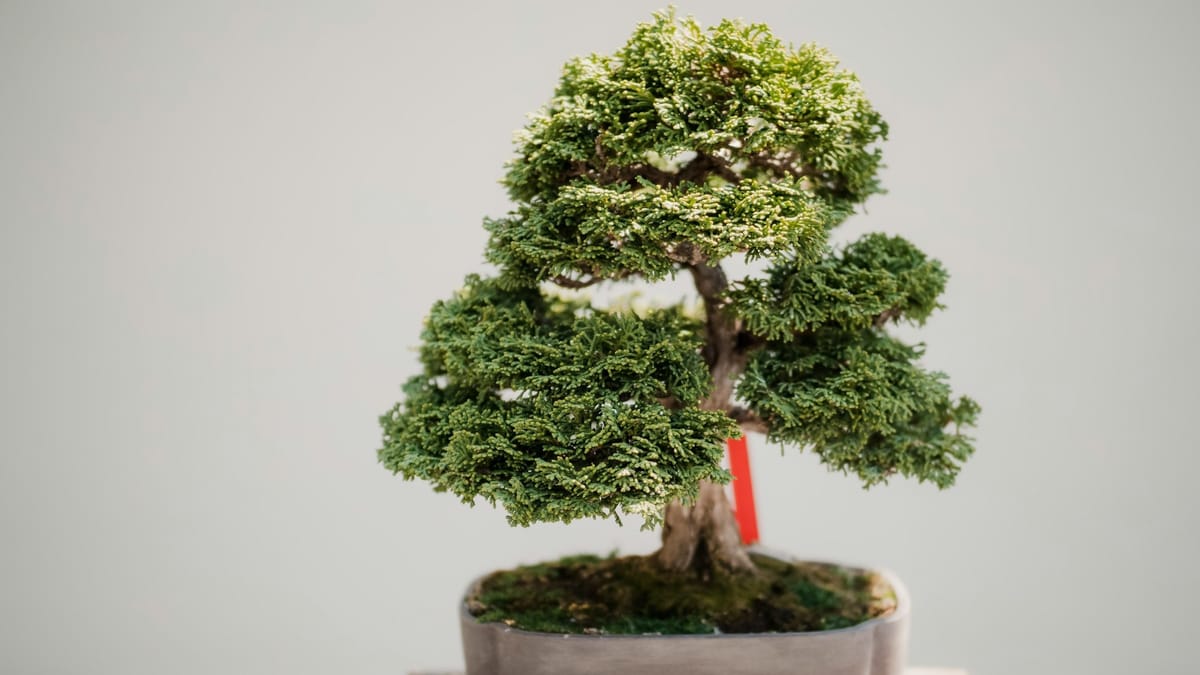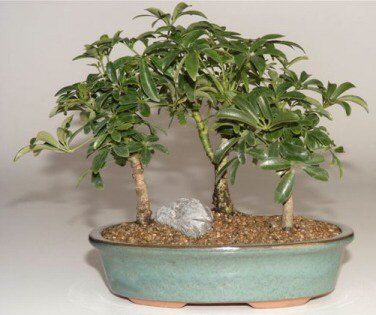Bonsai Tree Benefits: How Growing Bonsai Trees Can Help Seniors Avoid Dementia
Find out how senior citizens can reduce the risk of diseases like Alzheimer's by growing and nurturing bonsai trees. The challenging nature of bonsai cultivation helps to keep the brain active and provides a long-term project and new skills to learn.

Discover the fascinating world of bonsai trees and their surprising benefits for senior citizens in reducing the risk of dementia. This article explores how the art of cultivating these miniature trees can keep the brain active, providing a long-term project and new skills to learn. As seniors seek ways to stave off dementia symptoms, the challenging yet rewarding nature of bonsai cultivation offers a unique and therapeutic activity, both indoors and outdoors.
Bonsai trees have been a source of fascination for centuries, with their unique blend of art and nature captivating the hearts of many. These tiny trees, carefully crafted and trained to thrive in small pots, offer a multitude of benefits for both body and soul. From purifying the air and promoting relaxation to fostering creativity and self-awareness, the advantages of growing bonsai trees are numerous. In this article, we will delve into the world of bonsai, exploring its history, benefits, and the science behind its impact on our well-being.
What is Bonsai?
Bonsai is the ancient art of growing miniature trees in shallow pots. The word “bonsai” is derived from the Japanese words “bon,” meaning tray, and “sai,” meaning plant. This delicate art form originated in China over 2,000 years ago and was later refined in Japan. Bonsai trees are not a specific species of tree, but rather a style of growing and training trees to achieve a desired shape and size. With patience, dedication, and the right techniques, anyone can create a beautiful bonsai tree.
Benefits of Growing Bonsai Trees for Seniors
Growing bonsai trees can be a particularly rewarding hobby for seniors. The gentle exercise and mental stimulation involved in caring for these tiny trees can help to improve cognitive function, reduce stress, and promote relaxation. Additionally, the sense of accomplishment and pride that comes from nurturing a bonsai tree can help to boost self-confidence and self-esteem. Many seniors also find that the calming effects of bonsai trees help to alleviate symptoms of anxiety and depression.

Promoting Memory Function and Social Skills:
The art of growing bonsai trees entails regular care and observation, promoting memory function as seniors keep track of watering schedules and other maintenance details. Engaging in this hobby also taps into the nurturing aspect of the brain, which, in turn, helps preserve social skills. Sharing this skill with family members, such as children or grandchildren, strengthens family bonds and creates a meaningful and enjoyable intergenerational activity.
The Science Behind Bonsai and Brain Health
Research has shown that being around plants, including bonsai trees, can have a positive impact on brain health. The calming effects of bonsai trees can help to reduce stress levels, lower blood pressure, and promote relaxation. This is due in part to the release of negative ions, which can help to neutralize free radicals and promote a sense of calm. Additionally, the mental stimulation involved in caring for bonsai trees can help to improve cognitive function and reduce the risk of age-related cognitive decline.
Choosing the Right Tree Species for Your Bonsai
With so many tree species to choose from, selecting the right one for your bonsai can be a daunting task. When choosing a tree species, consider factors such as climate, soil type, and desired shape and size. Some popular tree species for bonsai include ficus, juniper, and Chinese elm. Ficus bonsai trees are known for their small leaves and ability to thrive in indoor environments, making them a popular choice for beginners. Juniper bonsai trees, on the other hand, are prized for their unique shape and ability to tolerate a range of temperatures.
All of our guides, downloads, worksheets, Premium courses
Click Subscribe To Get Started.
Caring for Your Bonsai Tree
Caring for a bonsai tree requires patience, dedication, and attention to detail. To keep your bonsai tree healthy and thriving, make sure to provide it with the right amount of water, light, and nutrients. Regular pruning and training are also essential to maintaining the desired shape and size of your bonsai tree. With proper care and attention, your bonsai tree can bring joy and beauty to your life for years to come.
Growing Bonsai Trees to Reduce Dementia Risk:
As seniors navigate the quest to maintain cognitive health, embracing the art of growing bonsai trees emerges as an unexpected but effective solution. By nurturing these miniature wonders, seniors engage in a stimulating and challenging activity that keeps the brain active. Bonsai trees offer a captivating long-term project, where seniors can learn essential skills like pruning and training branches, promoting fine motor control and mental sharpness.
Choosing the Right Tree and Care:
Whether indoors or outdoors, growing bonsai trees offers a delightful experience for seniors. While certain varieties may have tiny leaves and branches, magnifying lighted floor lamps can assist with any eyesight concerns. Novice bonsai growers can opt for beginner-friendly trees like juniper, Chinese elm, Hawaiian umbrella, or ficus, each offering unique growth patterns and relatively low maintenance. With guidance from books and magazines, seniors can master the art of bonsai care, from the initial growing stage to the crucial training and maintenance phases.
FAQ: Bonsai Tree Benefits – How Growing Bonsai Trees Can Help Seniors Avoid Dementia
What are the benefits of bonsai trees for seniors?
Bonsai trees provide numerous benefits for seniors, including lowering stress levels, nurturing self-confidence, and encouraging creativity. Tending to these tiny trees can help seniors stay engaged in the present moment, reducing psychological stress and promoting general well-being.
How can growing bonsai trees help prevent dementia?
Growing bonsai requires patience, creativity, and learning new techniques such as pruning, watering, and repotting. These activities stimulate the brain, improve memory, and enhance cognitive functions, which can help reduce the risk of dementia.
What tree species are best for indoor bonsai?
Popular indoor bonsai tree species include ficus bonsai, jade bonsai, Chinese elm, and juniper bonsai. These species thrive indoors and can help improve air indoors by filtering out carbon dioxide and indoor air pollutants.
Can bonsai trees improve indoor air quality?
Yes! Bonsai plants absorb carbon dioxide and release oxygen, contributing to good aeration and maintaining humidity in the indoor environment. This can help alleviate issues such as dry skin and sore throats, especially during the winter months.
How does growing bonsai trees reduce stress levels?
The art of bonsai, deeply rooted in many cultures such as Japanese and Chinese traditions, promotes harmony, relaxation, and positive energy. The process of shaping branches and tending to new leaves fosters mindfulness, lowers psychological stress, and enhances general well-being.
Do bonsai trees require much space?
No, bonsai trees are compact and can fit in small indoor spaces. Despite their small size, these tiny trees bring the beauty of nature indoors and contribute to a calming indoor environment.
How can caring for bonsai trees nurture self-confidence?
Successfully growing bonsai trees through proper care, such as watering, pruning, and learning new techniques, gives seniors a sense of accomplishment. Watching their bonsai thrive through each growing season can boost self-esteem and nurture self-confidence.
Is bonsai a good hobby for seniors?
Yes! Bonsai is a rewarding hobby that combines nature, art, and creativity. It encourages patience, enhances creativity, and keeps the mind active. Additionally, it fosters a connection with nature and promotes a sense of harmony.
Can bonsai trees help create a positive indoor environment?
Absolutely. According to Feng Shui principles, bonsai trees bring positive energy, harmony, and balance into the home. They can create a peaceful indoor environment that promotes relaxation and lowers stress.
What are some essential care tips for bonsai trees?
- Light: Place your bonsai in a spot with adequate sunlight.
- Watering: Maintain proper soil moisture without overwatering.
- Repotting: Repot the tree periodically to refresh the soil and promote healthy growth.
- Pruning: Regularly trim branches and new leaves to maintain the desired shape.
- Good aeration: Ensure proper air circulation around the plant to support its health.
Final Thought:
Growing bonsai trees is more than a hobby—it’s a journey of life, patience, and creativity. For seniors, tending to these beautiful bonsai plants can enhance their general well-being, stimulate their creative side, and potentially help prevent dementia by keeping their minds active and engaged. Start your bonsai journey today and enjoy the timeless benefits of this ancient art form that originated in Asia and has been passed down from one generation to the next.
Our Resources section can help you find the information and tools that you need. We have courses, videos, checklists, guidebooks, cheat sheets, how-to guides and more.
You can get started by clicking on the link below. We know that taking care of a loved one is hard work, but with our help you can get the support that you need.
Click here to go to Resources Section now!




